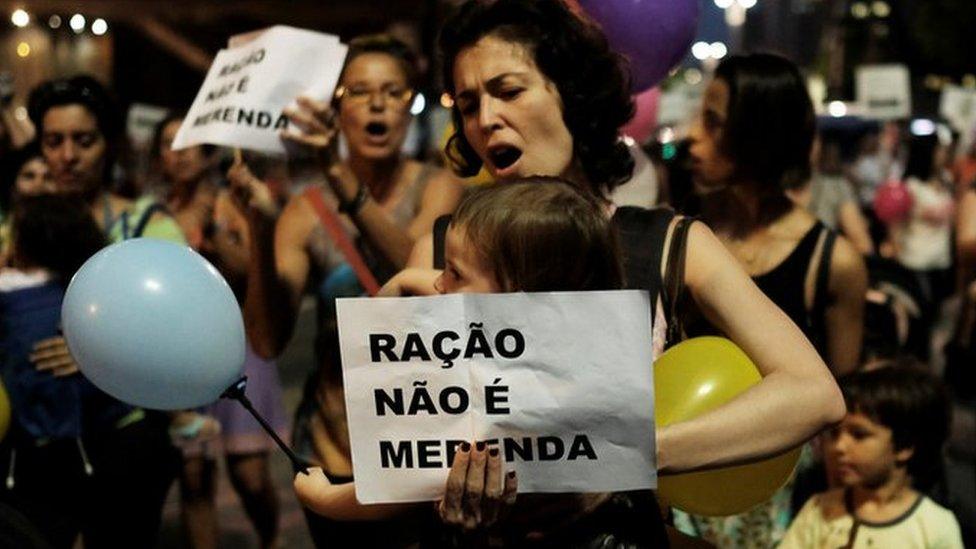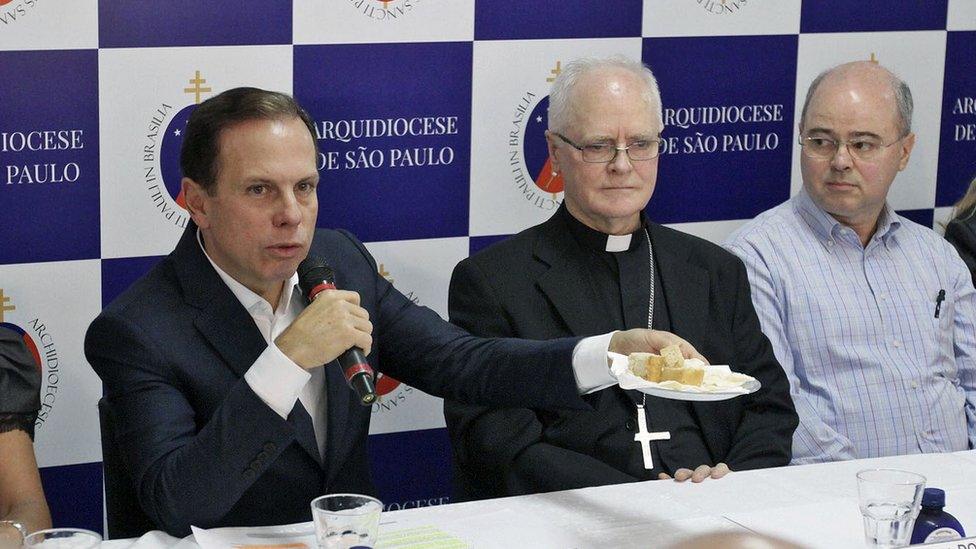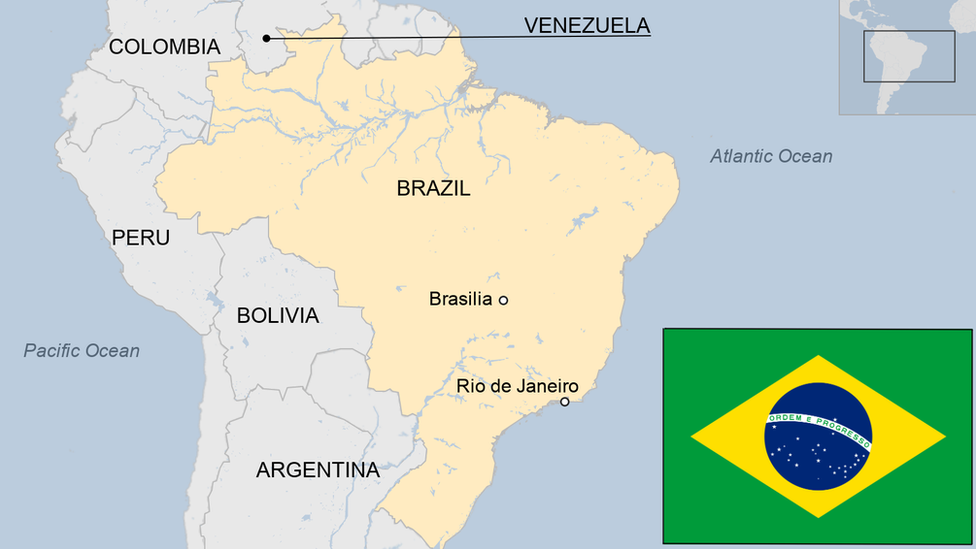São Paulo's food pellets plan for poor children divides Brazil
- Published

A woman holds up a placard reading "food pellets are not a meal" during a protest
Plans to feed poor children reconstituted food made from leftovers near expiry have sparked a row in the Brazilian city of São Paulo.
The product, known as farinata from the Portuguese word for flour but dubbed "dog food" by critics, can be eaten as pellets or added to meals.
Mayor Joao Doria says it could curb hunger and cut food waste.
But critics have questioned its nutritional value and prosecutors have opened an inquiry into the plans.
Mr Doria said he had already authorised farinata's distribution to some schools to be used in meals "in a complementary form" from this month.
He described the pellets as "blessed food".
But the Regional Council of Nutritionists said they amounted to a violation of the right to adequate food.
"When we offer pellets to lower income people to eat, we are only exacerbating the inequality in society," spokeswoman Vivian Zollar said.

Mayor Doria (L) launched the scheme on Wednesday and passed around bread he said had been made with farinata
Marly Cardoso, a professor of public health and nutrition at the Federal University of São Paulo, said it was unclear what farinata was made of.
"It is not food, it is an ultra-processed product. You don't know what is in it," he told, external the Guardian newspaper.
Meanwhile the city's human rights secretary, Eloísa Arruda, said no study on the nutritional needs of poor schoolchildren had been carried out.
However Mr Doria has received support from São Paulo Cardinal Odilo Scherer.
"It offends me when people call this dog food, and say it is degrading to the poor. It is degrading to deny them food," he said.
Plataforma Sinergia, the non-profit company behind the pellets, says the product meets all legal requirements.
Spokeswoman Rosana Perrotti said farinata could extend the shelf life of foods nearing expiry by at least two years.
The company said it had already distributed farinata to three NGOs and said it wanted to distribute them to Venezuelans fleeing their country's economic crisis across the border into northern Brazil.
Some 1.5 million people in Sao Paulo state and 7.2 million people across the country lack food, a 2013 study by the Brazilian Institute for Geography and Statistics found.
- Published2 June 2023
